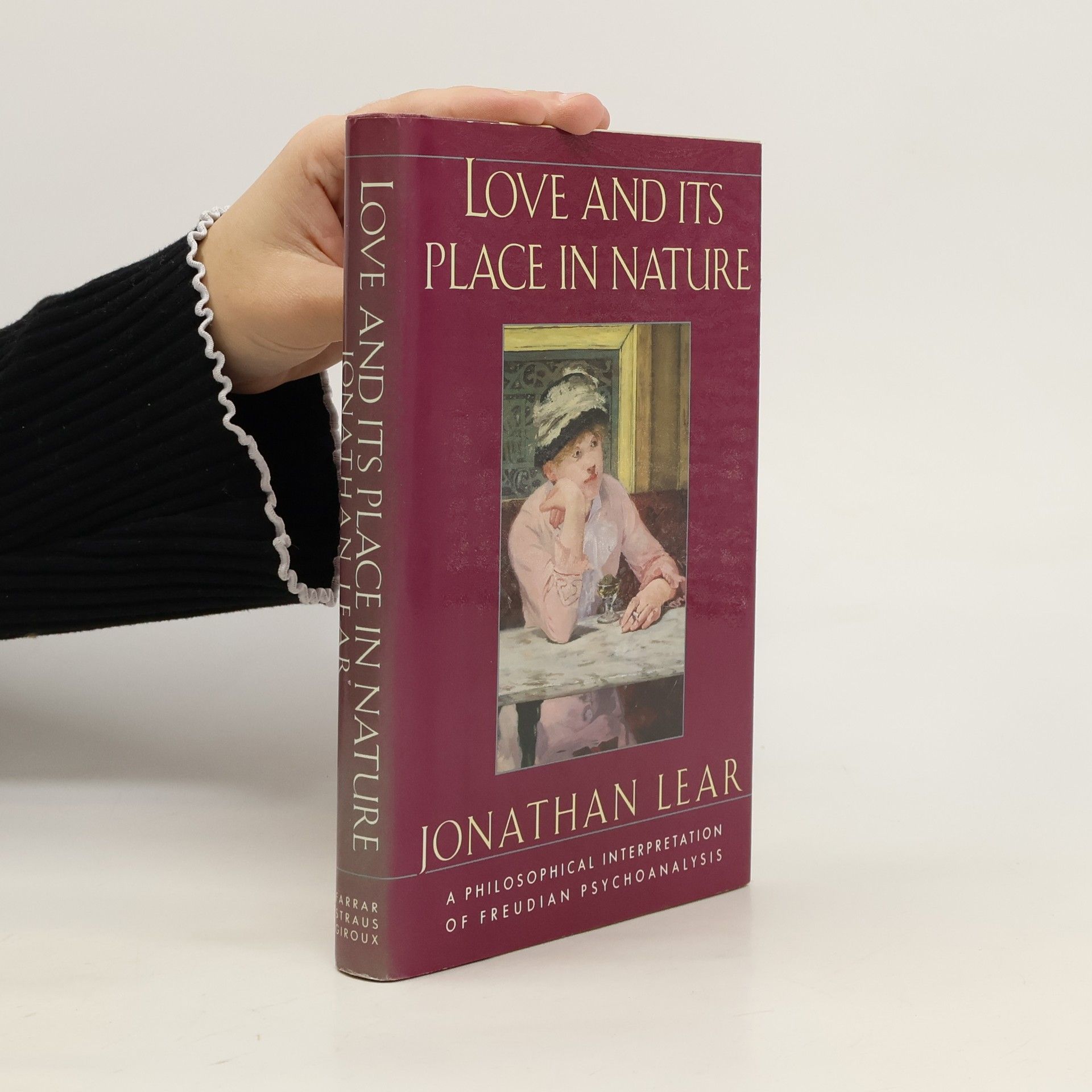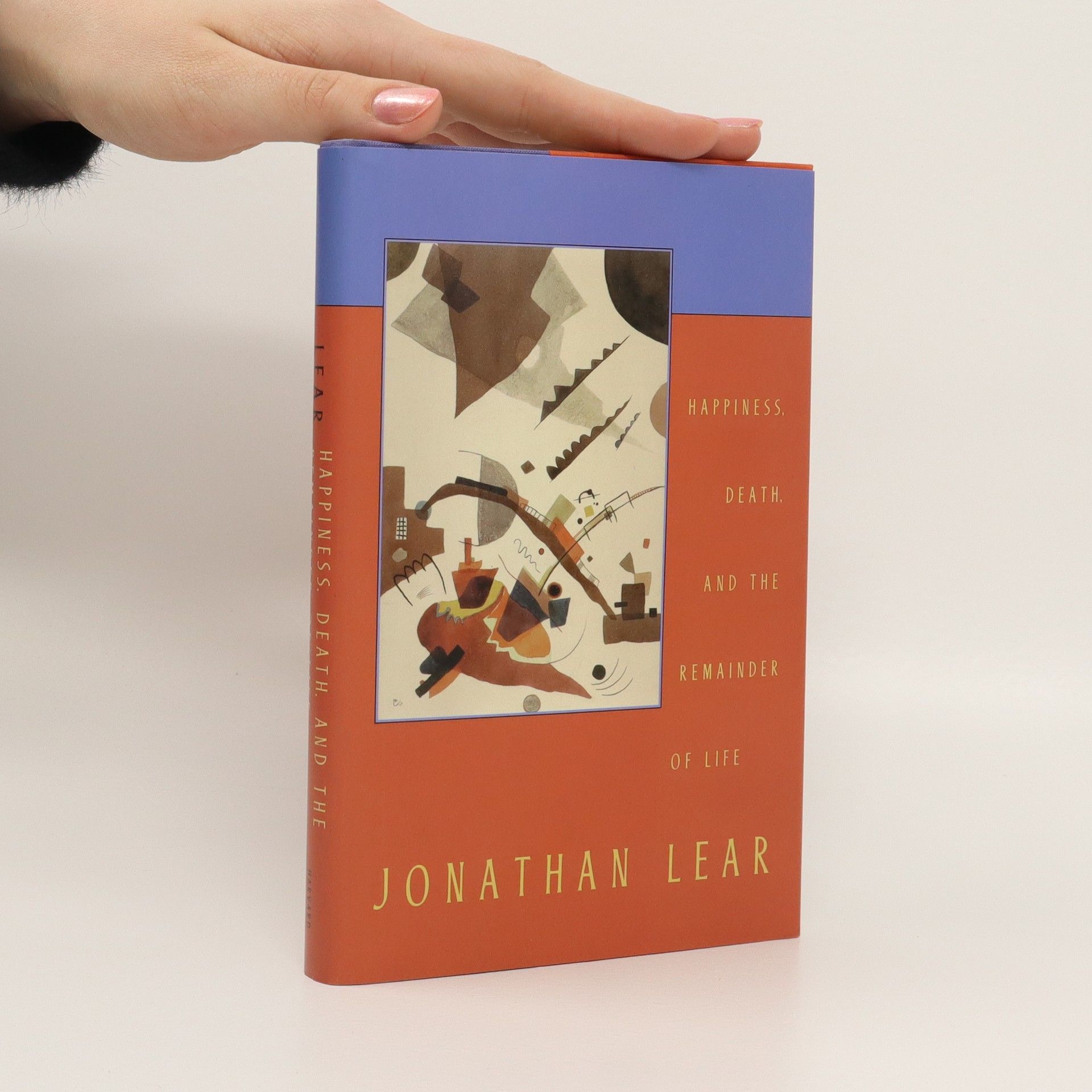Guerrilla Teaching
- 216pagine
- 8 ore di lettura
Guerrilla Teaching is a revolution. Not a flag-waving, drum-beating revolution, but an underground revolution, a classroom revolution.
Jonathan Lear approfondisce la comprensione filosofica della psiche umana e le implicazioni etiche che derivano dalla nostra natura di creature. Il suo lavoro si concentra principalmente sulle concezioni filosofiche della mente umana, spaziando dall'epoca socratica ai giorni nostri. Lear integra la filosofia con la psicoanalisi, offrendo profonde intuizioni sulla condizione umana. I suoi scritti esplorano come le nostre motivazioni interiori e il nostro carattere plasmino la nostra condotta etica.







Guerrilla Teaching is a revolution. Not a flag-waving, drum-beating revolution, but an underground revolution, a classroom revolution.
Vanity Fair has declared the Age of Irony over. Joan Didion has lamented that Obama s United States is an irony-free zone. Here Jonathan Lear argues that irony is one of the tools we use to live seriously, to get the hang of becoming human. It forces us to experience disruptions in our habitual ways of tuning out of life, but comes with a cost.
Professor Lear introduces Aristotle's philosophy and guides us through the central Aristotelian texts - selected from the Physics, Metaphysics, Ethics, Politics and from the biological and logical works. This 1988 book is written in a direct, lucid style which engages the reader with the themes in an active, participatory manner.
"Aristotle and Sigmund Freud gave us disparate but compelling pictures of the human condition. But if, with Jonathan Lear, we scrutinize these thinkers' attempts to explain human behavior in terms of a higher principle - whether happiness or death - the pictures fall apart. Aristotle attempted to ground ethical life in human striving for happiness, yet he didn't understand what happiness is any better than we do. Freud fared no better when he tried to ground human striving, aggression, and destructiveness in the death drive."--Jacket
Offers an examination of Freud's thought as it applies to the development of the individual and the power of love
Presents the story of Plenty Coups, the last great Chief of the Crow Nation. This title contains a philosophical and ethical inquiry into a people faced with the end of their way of life.
In this fully revised and updated second edition, the author clearly introduces and assesses all of Freud's thought, focusing on those areas of philosophy on which Freud is acknowledged to have had a lasting impact. Essential reading for anyone in the humanities, social sciences and beyond.
Jonathan Lear's insightful meditation joins the end of the world to the end- that is, the purpose-of living. How to persist in the face of planetary catastrophe and the realization that even cultures can die? Lear sees in mourning an avenue of thriving and turns to a handful of moral exemplars to refine our sense of the good we can yet achieve.
Exploring the intersection of psychoanalysis and moral philosophy, the book examines whether reason can integrate the nonrational aspects of the psyche into a comprehensive understanding of humanity. Jonathan Lear argues that without addressing this integration, philosophy loses its connection to real human experiences. The work serves as a foundation for ethical considerations on how to live, emphasizing the importance of understanding both rational and nonrational elements of the human condition.